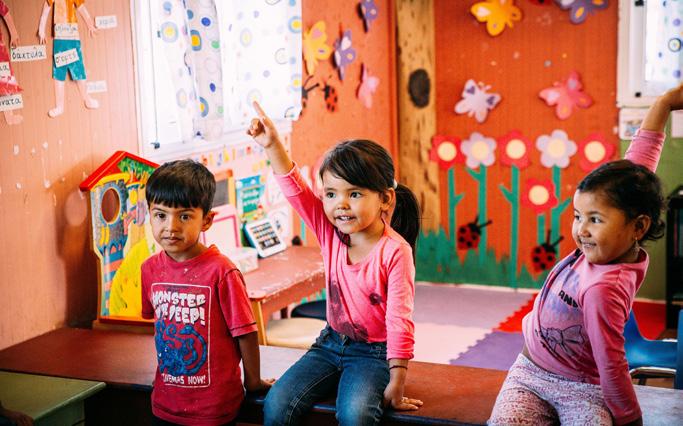
5 minute read
Word by Menno Antal – Supervisory Board Chair
6.4 EVALUATION OF ITS PERFORMANCE
The Supervisory Board held a performance review of its activities for the Annual Report 2020. It was conducted in accordance with the Wijffels Code - using a questionnaire and an assessment interview on the subject. The topics discussed included:
Advertisement
1. The composition and responsibilities of the
Supervisory Board; 2. The effectiveness of meetings and information provision; 3. The performance of the committees and individuals; 4. The Supervisory Board’s relationship with management and the organisation.
The evaluation
In general, Supervisory Board members are satisfied with its performance and the way in which management facilitates it. The Board’s diverse composition means that it feels all major areas of expertise are well covered. The Supervisory Board expresses its appreciation of the transparent and dynamic method of communication adopted by the managing director and the broader management team. Information provision by the MD, in document form as well as verbally, is considered open and positive. Written information provided is extensive, it could be more compact. The different committees – Audit, HR, Fundraising and Simba Family Care – facilitate a more substantive discussion of sub-areas. As a whole, feedback provided by the committees to the Board generally runs efficiently.
The Board does see several points for improvement.
• Besides the necessary attention to the diverse governance topics, in the future,
Supervisory Board members also need to discuss the projects in a more substantive manner. • The Supervisory Board considers that it would also be good to perform an evaluation of management as a whole on a periodic basis. • The Board has concluded that the
Supervisory Board should also be included briefly during Zoom meetings. • Post-Covid-19, more time should be spent together.
WORD BY MENNO ANTAL - SUPERVISORY BOARD CHAIR
Covid-19 has increased the necessity of our work
‘Africa will be hit hardest by the Covid-19 pandemic’ was the headline on the SOS Children’s Villages website at the end of March 2020. This was also the trend in the national media. However, the consequences of Covid-19 on the African continent does not only concern the number of people killed by the virus, but the impact on the lives and the future of these people. Of the children, young people and families that SOS Children’s Villages focuses on.
For example, education in many countries is not geared towards home schooling. This is due to a lack of access to online education as well as a lack of materials and space - from books, laptops and radios to a place to study. It means a delay in the development of many children, many of whom were already at a disadvantage. In addition, there are many vulnerable families. Families already living in poverty, families in which grandparents have taken over the children’s care, families whereby the knowledge of and need for hygiene is lacking or is not a priority. When people have to choose between a loaf of bread and a bar of soap, they logically choose the bread. Many people live from hand to mouth. If they cannot work, the direct consequence is that there is no food on the table. And how do you keep your distance when you live on top of one another in a slum?
More people received support
It is in fact the aftermath of Covid-19 that causes the most concern and hits children and families the hardest. The food insecurity, the economic consequences of not being able to work, the impact on family structures means children are at greater risk of being abused, neglected or abandoned. The need for our work has therefore increased in the past year. More children, young people and families need support to overcome the Covid-19 crisis.
Looking at the activities of SOS Children’s Villages this past year, in which we supported and implemented large projects - as described in this annual report , I am relieved to conclude that we were able to realise the ‘support more people’ objective and help a large number of children, young people and parents/caregivers (176,500 people) with support from the Netherlands
Commitment of colleagues and supporters
In addition to the unconditional commitment of our colleagues in the field and the strength of the worldwide organisation, this has been made possible by the loyal support of our donors and partners, and the efforts of the Dutch team. The Board is very grateful to all our supporters who - in spite of possible concerns of their own - have freed up extra funds for the children and families, or have been willing to enter into a partnership at this time. This demonstrates their commitment and understanding of the urgency.
Immediately after the lockdown came into effect, the Supervisory Board and the organisation drew up various scenarios of what might happen. In the end, the impact in financial terms was limited. This has allowed us to fully continue our activities, while adapting to the restrictions and needs resulting from Covid-19. I am also impressed by the performance and flexibility of the Dutch team. Despite the challenges of working from home and personal family situations, they managed to achieve all their targets. The various experiences gained are important learning points, which we can take forward after Covid-19.
Transparency and trust










